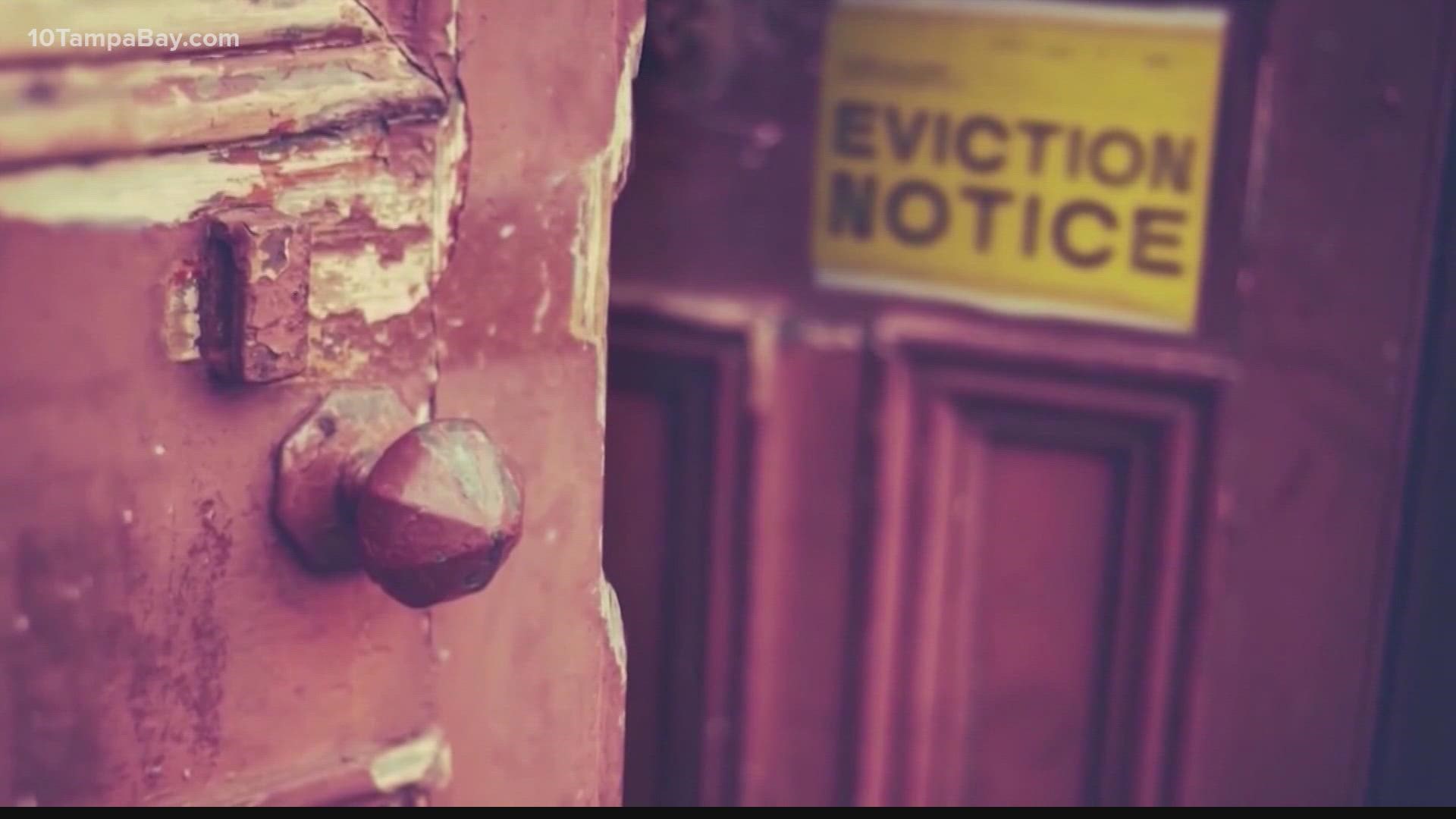TAMPA, Fla. — The federal eviction moratorium has expired, leaving millions of Americans wondering what their living situations will look like in the coming weeks.
Florida is no exception, with some tenants unsure if their landlords will file for an eviction in the coming days.
Rachael Trombley of St. Petersburg said the pandemic impacted her in just about every possible way. She contracted COVID-19 and now is awaiting a kidney transplant.
"With COVID it caused my kidneys to go into end-stage renal disease," Trombley said.
She said with several dialysis appointments a week, she is unable to work nor is physically able to.
"If I get evicted, I will have no choice but to live with friends and family because I have to stay in Tampa Bay," Trombley said. "That's why I'm here: to be here for the Tampa General Hospital transplant team."
Trombley said she used her stimulus money to cover rent. Now, she had to choose between her healthcare costs, childcare and living expenses.
She has applied three times for rental assistance through the state's "OUR Florida" program.
"They say they don't have documents available, although I've offered to mail them," Trombley said, "I was really relying on that assistance and I talked to my landlord about it. They're aware I won't be able to make rent and I'm hoping something comes together in time."
Florida is using $1.4 billion from the federal government to help tenants pay delinquent rent, utility payments and other overdue expenses. About $530 million of that money will go directly to the state’s largest communities — those with populations of more than 200,000 — to help renters in arrears.
The rest of the money is being distributed by the state’s Department of Children and Families through “OUR Florida.” The department website indicates that as of July 13, the program had paid more than $3.9 million in rental or utility assistance to 869 people. It says an additional $24 million has been pledged to more than 7,030 tenants deemed eligible and that it should be disbursed by the end of July.
Trombley said she feels the stress of not knowing what's next, and hopes to see the state work with tenants like her to help in rental assistance.
"To have the stress of not knowing if I could have a home when help is available and not being utilized is heartbreaking and says a lot to the state of Florida and how we're responding to this pandemic," Trombley said.
The U.S. Census Bureau estimates that more than 1.4 million Floridians are not current on their rent and about a fourth of them believe they are likely to be evicted within two months.

